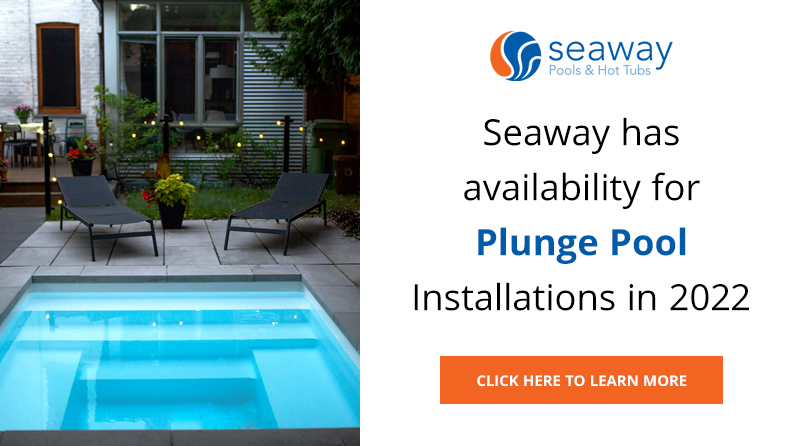Jul
2024
15
How to Choose Between Chlorinated and Saltwater Generator Pools
When you choose to install a pool in your backyard, there are many decisions you need to make in regard to said pool. Size, shapes, depth, liners, additional features, and design elements are all things that need to be considered. One of the most significant decisions you have to make is whether you want a chlorinated pool system or a saltwater system. Each one has its pros and cons, so it is important to be well-informed in order to determine which option is best for your needs. There are pros and cons to both options, so it is important to make note of your priorities. With saltwater pools, it is gentler on the skin and eyes when compared to chlorine pools, however, this option may be more expensive initially and can leave a salty taste in your mouth. Chlorinated pools are a bit less expensive and are extremely sanitary, although they may cause skin irritation in sensitive individuals. We will dive into these pros and cons further to ensure that you can make a well-informed decision when it comes to picking your pool. The swimming pool builders at Seaway Pools & Hot Tubs offer inground pool installation along with both chlorinated and saltwater generators. Call Seaway Pools & Hot Tubs today for more information on the pool of your dreams!
Continue reading to learn more about how to choose between a saltwater pool and a chlorinated pool.
.jpg) Pros of Saltwater
Pros of Saltwater
A saltwater generator can be an excellent choice for your pool, and this option has become increasingly popular over the years for good reason.
Saltwater pool generators still produce chlorine but is nowhere near as strong or harsh. Saltwater is very gentle on the body, skin, and eyes. Many people have sensitivity to traditional pool chemicals and can develop redness and rashes as a result of swimming in chlorinated pools. Saltwater doesn’t cause these types of reactions and can be a better choice for those who have sensitive skin or eyes. Saltwater can also be better for your nose. Saltwater doesn’t have a particularly strong smell, unlike chlorine, and doesn’t linger either, again making it a good choice for those with a sensitive nose.
Saltwater pools are also known for being more low maintenance. Saltwater pool chlorinators will continue to release the chemicals into your pool based on the pool's needs and levels. This automatic system can result in a more consistent chlorine levels in your pool. The chlorine that is produced in saltwater pools is also more stable and long lasting in comparison to traditional chlorine. This demonstrates that saltwater pools are, overall, a lower maintenance option, which can be perfect for those who want easy pool care.
Pros of Chlorine
Chlorine is usually the standard when it comes to pools, and it is typically the generator of choice when it comes to public pools.
Chlorine is extremely effective at sanitizing your pool water. Chlorine kills bacteria, germs, and viruses and can even prevent algae growth in your pool. So as soon as any pathogens enter your water, they won’t linger when you have a chlorinated pool. So if you are someone who often hosts pool parties and has many different people using your pool regularly, chlorine may be a better choice.
Chlorine is a widely available and familiar chemical for your pool. There is a lot of informational content about chlorine pools on the internet that can help you troubleshoot issues. Chlorine is also very precise as a pool disinfectant because it is applied manually. So as a pool owner, you can easily adjust the chlorine levels of your pool whenever you please based on your needs. The fast acting nature of chlorine ensures that your pool is ready to use as soon as you sanitize it.
Cons of Saltwater
Although saltwater is an excellent pool disinfectant, in order to look at the product holistically, it is prudent to review some of its downsides:
- Saltwater pools generally have higher initial startup costs compared to chlorine
- Saltwater can be corrosive if it is not properly maintained, which can be damaging to the elements of your pool
- Saltwater can have a strong, displeasing taste that is rather off-putting
- Saltwater pool generators typically require electricity to operate, which can raise your utility bills.
Cons of Chlorine Pools
Chlorine is the most widely used pool disinfectant, however, it too has some cons that future pool owners should consider before investing:
- Chlorine can be irritating to your eyes and skin, and it can cause redness, dryness, and irritation
- The smell of chlorine is something that can be bothersome to frequent pool users as it can be persistent and difficult to get rid of
- Regular maintenance and frequent reapplication of pool chemicals are necessary for chlorine pools, making them more high-maintenance
Make the Right Choice at Seaway Pools & Hot Tubs
Overall there are benefits and drawbacks to using either saltwater generators or chlorine in your home pool. Saltwater is gentler and low maintenance but can be more expensive to maintain. Whereas chlorine is extremely effective at disinfecting and offers precise application, although it can be irritating to the skin and eyes. You should choose your pool chemicals and generator based on your needs, wants, and priorities. If you require assistance with your inground pool installation, call the swimming pool builders at Seaway Pools and Hot Tubs! We offer both chlorine and saltwater solutions to suit the needs of our customers.

